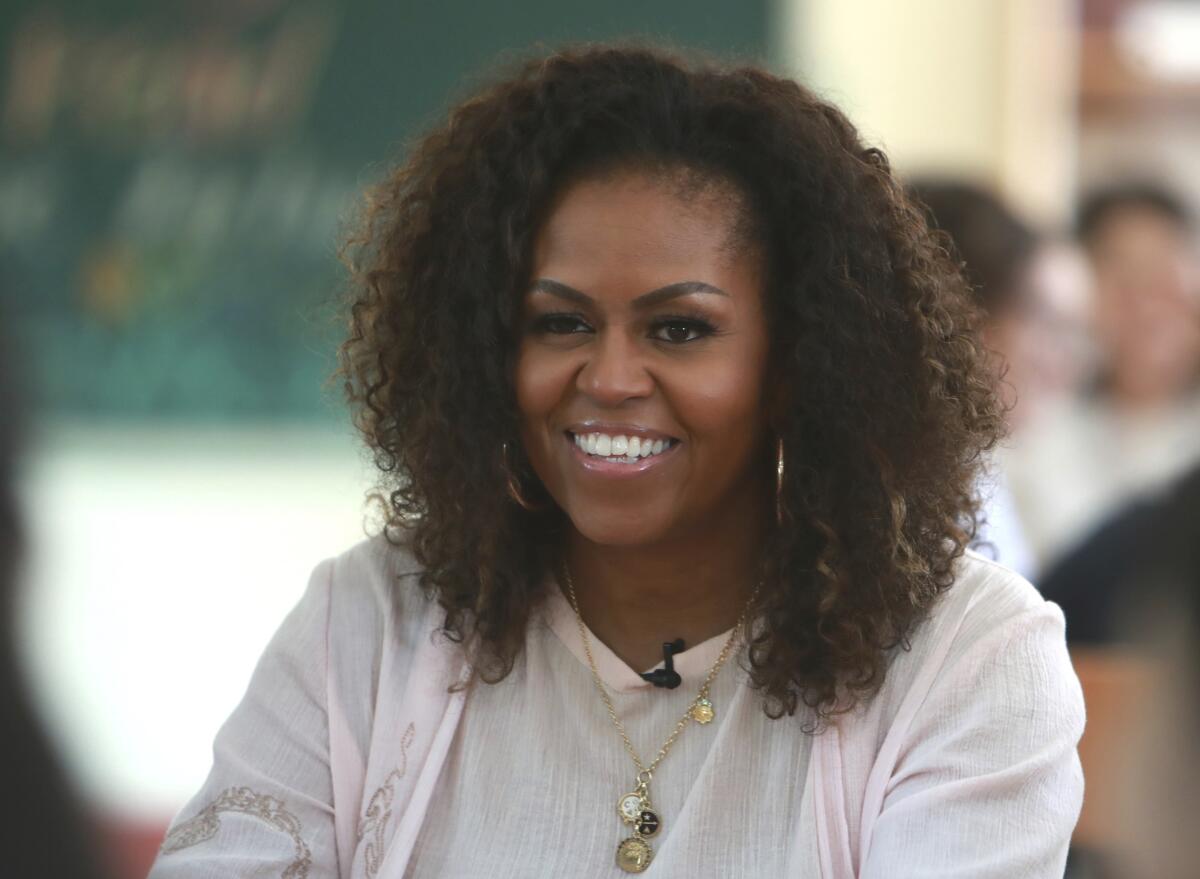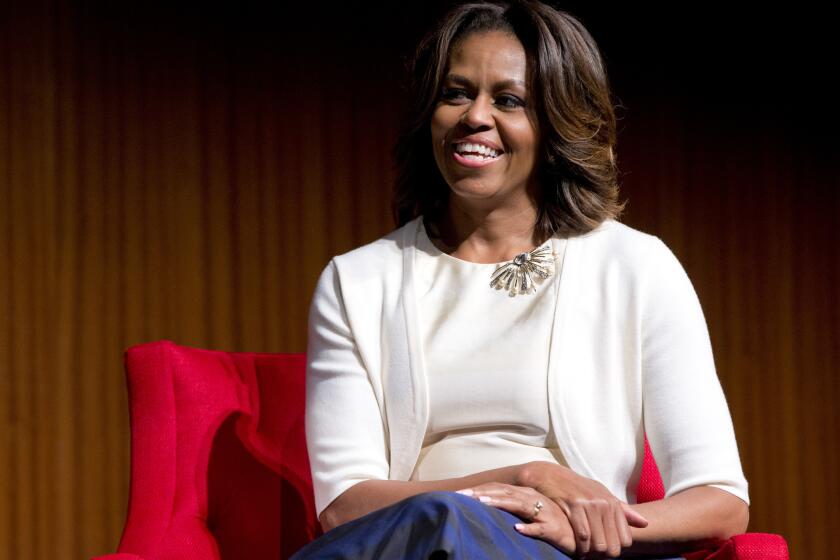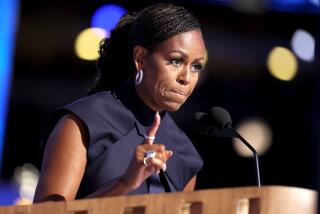Michelle Obama: We need to consider essential workers exactly that — essential

- Share via
Michelle Obama’s latest podcast episode is essential listening for Americans depending on essential workers amid the COVID-19 crisis.
During Wednesday’s episode, the former first lady and her guest, veteran journalist Michele Norris, saluted all the sanitation workers, grocery store employees, healthcare professionals and others risking their own safety to continue serving their communities through the pandemic.
“I think we will forever think about the word ‘essential’ in a different way,” Norris said. “When we were told to stay home, they got up, got dressed and went out into the world ... often doing invisible but, yes, essential work. And I struggle with it because I’m not sure that we treat them like they’re essential.”
“We have to think about that, in terms of how wealth is distributed — how these essential people are supported,” Obama said. “A lot of these people are broke. They don’t have health insurance. If they were to get sick, as essential as they are, we have not — as a society — deemed it essential to make sure that they can go to the doctor and get the care that they need.”
Obama went on to address the portion of the population that isn’t taking the public health emergency seriously, potentially endangering themselves and others by refusing to practice social distancing or wear masks.
“We’ve got to stop and think about who is dying from this disease and who will have trouble recovering,” she said. “One of the many frustrating things to watch in this pandemic is people who aren’t willing to make the sacrifice of even wearing a mask, to stay at home. Because they don’t see the virus. It didn’t impact them. They’re tired of being at home. There’s almost like there’s a limit to our sacrifice — and it was about a month.”
Later in the conversation, Obama opened up about experiencing depression as a result of the ongoing pandemic, as well as the killings of Ahmaud Arbery, Breonna Taylor, George Floyd and other Black people, which have spurred worldwide protests against racial injustice.
“I’d be remiss [not] to say that part of this depression is also a result of what we’re seeing in terms of the protests, the continued racial unrest that has plagued this country since its birth,” she said.
“Waking up to yet another story of a Black man — or a Black person — somehow being dehumanized or hurt or killed or falsely accused of something, it is exhausting. And it has led to a weight that I haven’t felt in my life in a while.”
Michelle Obama’s podcast will center on relationships. It is the first program to come out of a partnership between Spotify and Higher Ground, Michelle and Barack Obama’s production company.
While husband Barack’s presidency gave her some hope “that things have changed,” Obama noted several signs of systemic racism in America, including healthcare and economic disparities, as well “the fact that we have prisons full of Black men.”
“There were signs,” she said. “That still doesn’t take away the hurt and the pain that comes with realizing that so many of the people we share this planet with ... that they still don’t see us as human. What does it take? ...
“I am heartened by the depth, the sustained vigor, the diversity, the peaceful nature of these protests. That helps me sleep at night. That reminds me of the truth — that no matter how I feel or what my role is — that we are making progress. There is that truth, and Barack and I talk about it all the time — that this is a generation that is not used to the way things were because we ... instilled in this generation a different sense of fairness and justice.”
Wednesday’s episode of “The Michelle Obama Podcast” is available in full exclusively on Spotify.
More to Read
The biggest entertainment stories
Get our big stories about Hollywood, film, television, music, arts, culture and more right in your inbox as soon as they publish.
You may occasionally receive promotional content from the Los Angeles Times.












